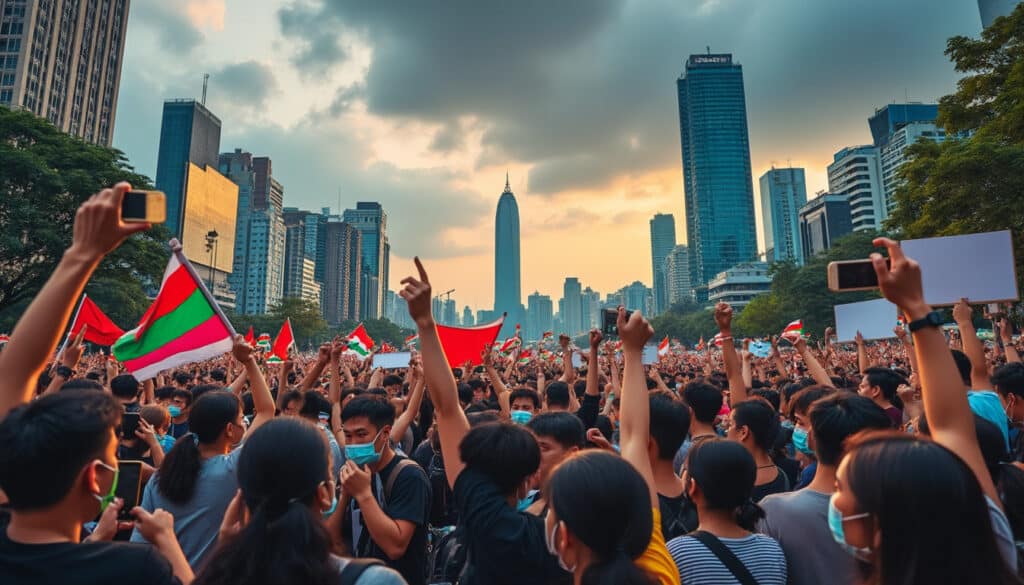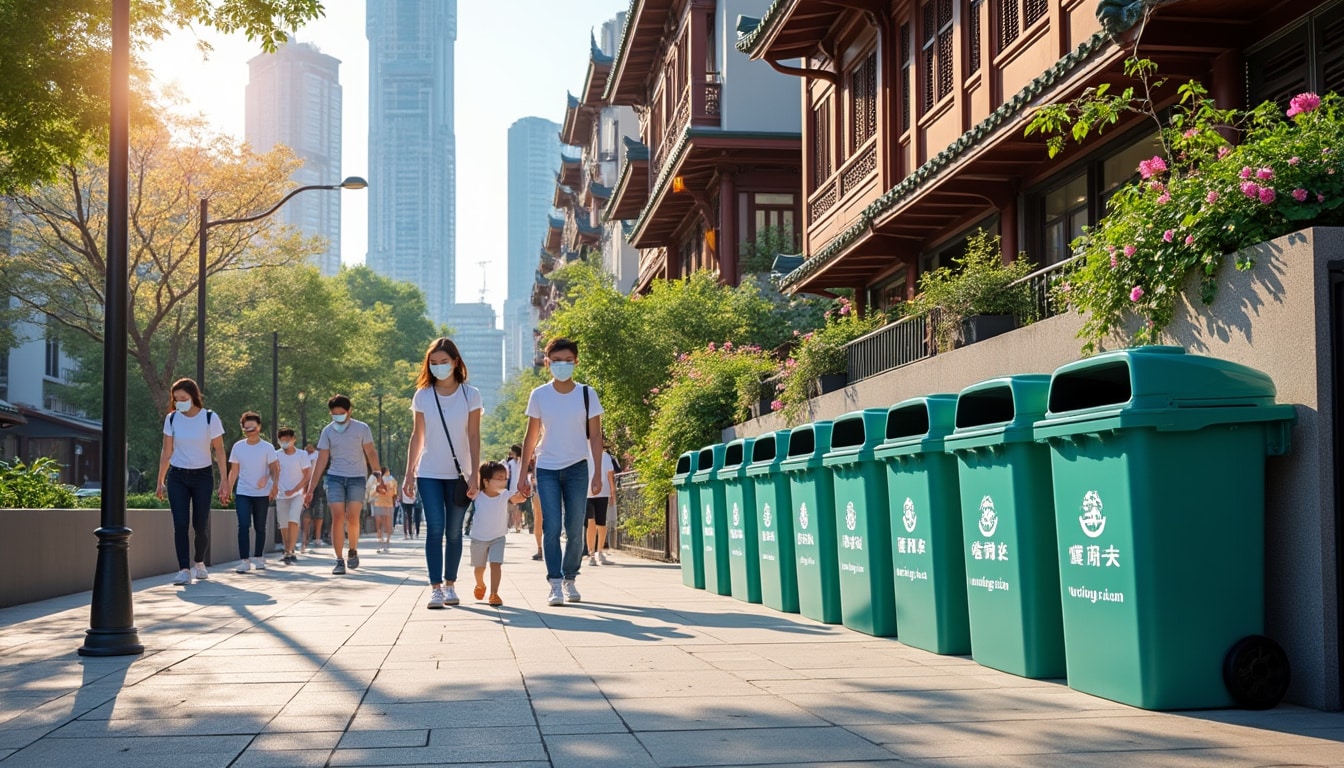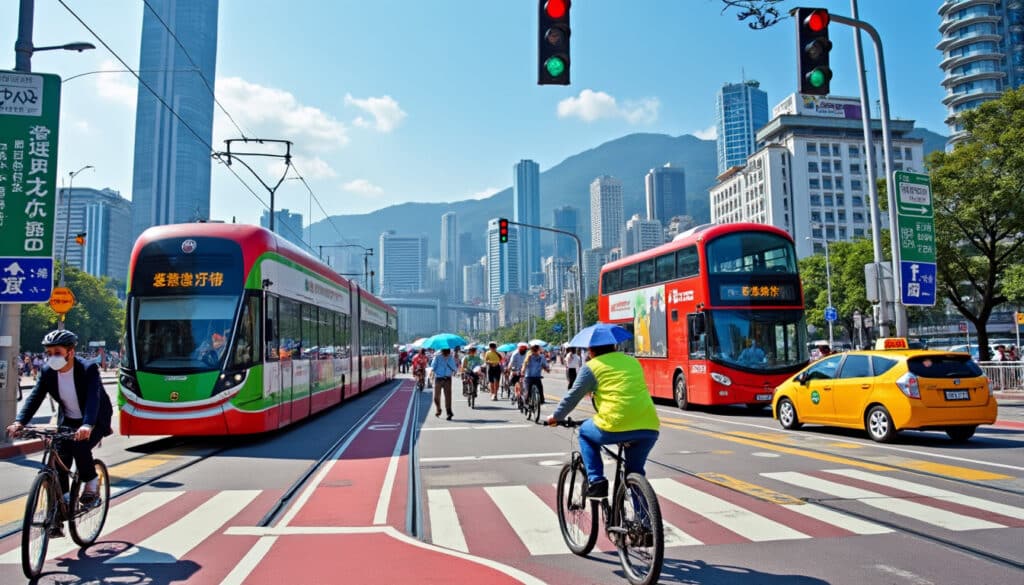Ensuring a clean and hygienic environment in Hong Kong remains a paramount concern for both residents and visitors. The city’s dense population and bustling urban life necessitate robust hygiene practices to maintain health standards and enhance quality of life. Critical aspects involve strategies deployed by various governmental departments and the collective effort of the community to uphold sanitation standards. Emphasizing personal, home, and community hygiene helps in mitigating health risks and promoting a healthier lifestyle for everyone.
Personal and Home Hygiene Practices in Hong Kong
Maintaining cleanliness and hygiene at a personal level is vital in shaping a healthy environment. Hong Kong’s government actively promotes personal hygiene to prevent diseases and improve public health. Individuals are encouraged to keep a smoke-free environment and ensure proper ventilation by keeping windows open and maintaining air conditioners to reduce indoor pollutants.
Effective cleaning methods include wiping down furniture and household surfaces with diluted household bleach solutions like Clorox or Dettol, which are known for their antibacterial properties. Vacuum-cleaning floors and carpets regularly, using products such as Vileda or Mr. Clean, is important in preventing dust accumulation.
Paying attention to food hygiene is equally paramount. Storing food properly in refrigerators, cleaning kitchen appliances regularly, and using separate utensils for raw and cooked food prevents cross-contamination. Brands like Fairy and Bio-Home offer eco-friendly cleaning options, ensuring both cleanliness and sustainability.
- ✨ Ensure good ventilation by keeping windows open.
- ✨ Clean furniture with household bleach solutions.
- ✨ Vacuum floors daily using quality cleaning brands like Vileda.
Incorporating these practices not only enhances personal health but also reflects on the broader community, reinforcing Hong Kong as a model city for hygiene.

Public Hygiene and Sanitation Measures
Public hygiene in Hong Kong is meticulously managed, given its bustling streets and numerous public spaces. The Food and Environmental Hygiene Department (FEHD) plays a pivotal role in ensuring cleanliness in public areas, from streets to public restrooms. The department enforces a zero-tolerance policy for littering, backed by strict penalties, encouraging public compliance.
To maintain hygiene in public toilets, regular cleaning with brands such as Lysol and Dettol ensures a clean environment is upheld consistently. The FEHD also implements crowd management strategies in bustling areas to prevent overcrowding and maintain public safety.
Education plays a fundamental role in public hygiene. Campaigns and workshops aim to increase public awareness of personal responsibility in maintaining cleanliness. Engaging the community through these programs reiterates the importance of contributing to a cleaner environment.
- 🚮 Dispose of litter in designated bins.
- 🚮 Use Lysol for public restroom cleaning.
- 🚮 Participate in community hygiene workshops.
Collectively, these measures contribute significantly to Hong Kong’s reputation as a well-organized city committed to public health and cleanliness.
The Role of Government Departments in Environmental Hygiene
In Hong Kong, government departments work collaboratively to enhance environmental hygiene, ensuring both land and marine environments are preserved. The Agriculture, Fisheries and Conservation Department is tasked with maintaining marine park cleanliness, engaging contractors for regular cleanup and disposal of waste.
The Environmental Protection Department (EPD) focuses on marine refuse management. It uses advanced technologies like small unmanned aircraft to monitor and coordinate cleanup operations, deploying resources as needed. This ensures that areas with accumulated marine refuse are promptly addressed, safeguarding marine ecosystems and shoreline cleanliness.
- 🌊 Regular marine park cleanups.
- 🌊 Advanced technology for refuse management.
- 🌊 Coordination among government departments.
Efforts by the EPD and other departments exemplify a rigorous commitment to environmental hygiene, highlighting Hong Kong’s dedication to maintaining global cleanliness standards.
Educational Initiatives for Cleanliness Awareness
Education is a crucial aspect of sustainability in environmental hygiene. The Hong Kong government conducts various educational programs aimed at fostering awareness and promoting practical skills in maintaining hygiene. Activities include school talks, seminars, and public exhibitions, which stress the importance of cleanliness in enhancing the city’s aesthetic and natural appeal.
These initiatives not only contribute to environmental consciousness but also empower residents to take charge in protecting their surroundings. Companies like P&G and Seventh Generation support such programs by providing resources and expertise to enhance community engagement.
Preventing Pests and Promoting Hygiene in Shared Spaces
One of the ongoing challenges in Hong Kong’s hygiene maintenance is managing pest infestations. Effective pest control methods are vital in both residential and commercial buildings. Residents are urged to trim shrubs and maintain clean flower beds, which can deter rodent infestations. Using insecticides, following proper guidelines, helps control mosquito breeding and other pest activity.
Bio-Home and Zep offer eco-friendly solutions that are popular for pest control due to their reduced environmental impact. By promoting these alternatives, Hong Kong residents contribute to sustainable pest management.
In shared spaces such as lobbies and stairwells, regular cleaning and disinfection are critical. Facilities are maintained with a combination of community effort and professional cleaning services that use eco-friendly products.
- 🐜 Use eco-friendly pest control solutions.
- 🐜 Regular maintenance of shared spaces.
- 🐜 Professional services for difficult infestations.
| Tips for Pest Prevention | Brand Recommendations |
|---|---|
| Maintain clean garden beds | Bio-Home, Zep |
| Use effective insecticides | Seventh Generation |
| Regular professional checks | Vileda |
Proactive pest management and routine cleaning in communal areas significantly reduce the risks of infestations, ensuring a safer living environment for all residents.
Community Involvement in Shoreline Cleanliness
Hong Kong’s shorelines are of great ecological importance and attract many visitors. Community involvement in maintaining shoreline cleanliness is essential for preserving marine life and keeping beaches inviting. Shoreline cleanup events are regularly organized by the government and various NGOs, with active participation from the public encouraged.
These events help instill a sense of responsibility towards nature while educating participants on the environmental impact of marine refuse. By involving the community, the initiatives aim to ensure that each person contributes positively to the city’s environmental well-being.
FAQ
Here are some commonly asked questions about cleanliness and hygiene in Hong Kong.
Q: What are the penalties for littering in public spaces in Hong Kong?
A: Littering in public spaces can lead to significant penalties, including a fixed fine that has been proposed to increase to further deter offenders.
Q: How often are public sanitation facilities cleaned?
A: Public facilities are regularly cleaned, with high-traffic areas receiving daily attention and sanitation measures to ensure public safety and hygiene.
Q: How can individuals contribute to maintaining cleanliness in Hong Kong?
A: Individuals can contribute by properly disposing of waste, participating in community cleaning events, and adopting sustainable personal hygiene practices.

Hong Kong, a vibrant mix of cultures and histories, is a hub of excitement and innovation. With its iconic skyline and bustling streets, the city draws millions of visitors each year. However, ensuring a safe and enjoyable experience requires a…

Hong Kong—a dynamic city that never sleeps—is known for its skyscrapers, bustling markets, and vibrant mix of Eastern and Western cultures. As a global hub, it attracts millions of visitors each year and maintains a high standard of safety and…

Pickpocketing and theft in Hong Kong
Hong Kong with its dynamic blend of tradition and modernity is a city that never sleeps. Amidst its towering skyscrapers, bustling streets, and vibrant nightlife, a lurking issue has been ever-present: pickpocketing and theft. Recently, authorities have reported a sharp…

Protests and social unrest in Hong Kong
The complex landscape of protests and social unrest in Hong Kong offers a vivid glimpse into the evolving dynamics of citizen activism and governmental response in one of Asia’s most iconic cities. Over recent years, the fight for democratic freedoms…

Safety in Hong Kong for travelers from different countries
In recent years, the topic of safety in Hong Kong has become a focal point for travelers worldwide. With its impressive skyline, rich cultural heritage, and mouth-watering cuisine, Hong Kong has long been a magnet for tourists. However, the city’s…


